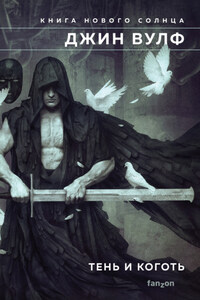Considering Drury’s life in general, I suppose I shouldn’t really be surprised. It’s unfortunate the young woman was French, though. We all know how he feels about the French.
—from The Collected Letters of Lord Bromwell, noted naturalist and author of The Spider’s Web
London, 1819
Panting, Juliette Bergerine lay on her bed in a tangle of bedclothes and stared at the stained ceiling above her.
It had been a dream. Just a dream. She was not in France, not back on the farm, and Gaston LaRoche was far away. The war was over, Napoleon defeated. She was in London. She was safe.
She was alone.
Except… what was that scuffling sound? It could be rats in the walls, but it seemed too distant.
And what was that noise? A shout? A cry of pain coming from the alley outside?
Kicking off her sheets and thin blanket, Juliette got out of her narrow bed and hurried to the window, raising the sash as high as it would go. Clad only in a chemise, she shivered, for the September air was chilly and tainted by the smells of burning coal, of refuse and dung. The half-moon illuminated the hastily, poorly constructed building across the alley, and the ground below.
Four men with clubs or some kind of weapons surrounded another man who had his back to the wall of the lodging house. She watched with horror as the four crept closer, obviously about to attack him. The man near the wall crouched, ready to defend himself, his dark-haired head moving warily from side to side as he waited for them to strike.
She opened her mouth to call out for help, then hesitated. She didn’t know those men, either the attackers or their victim. Given where she lived, they could all be bad men involved in a dispute about ill-gotten gains, or a quarrel among thieves. What would happen if she interfered? Should she even try?
Yet it was four against one, so she did not close the window, and in the next moment, she was glad she had not, for the man with his back to the wall cursed—in French.
A fellow countryman, so no wonder he was under attack. Being French would be enough to make him a target for English louts.
Just as she was about to call out, the tallest of the attackers stepped forward and swung his weapon. The Frenchman jumped back, colliding with the wall. At the same time, another assailant, his face shielded by his hat, moved forward, slashing. She saw the glint of metal in the moonlight—a knife.
She must help her countryman! But what could she do?
She swiftly surveyed her small room, plainly furnished with cheap furniture. She had a pot. A kettle. A basket of potatoes that were supposed to feed her for a week.
She looked back out the window. As the Frenchman dipped and swayed, the first man rammed his club into his side. He doubled over and fell to his knees while the man with the knife crept closer.
Juliette hauled the basket to the window, then grabbed a potato. As the lout with the knife leaned over the poor Frenchman and pulled his head back by his hair, as if about to slit his throat, she threw a potato at him with all her might and shouted, “Arrête!”
The potato hit the man directly on the head. He clutched his hat, looked up and swore. Juliette crouched beneath the window, then flung another potato in his direction. And another. She kept throwing until the basket was empty.
Holding her breath, she listened, her heart pounding. When she heard nothing, she cautiously raised her head and peered over the rotting windowsill.
The Frenchman lay on the ground, not moving. But his attackers were gone.
Hoping she was not too late, Juliette hastily tugged one of her two dresses on over her chemise, shoved her feet into the heavy shoes she wore when walking through the city to the modiste’s where she worked as a seamstress and ran down the stairs as fast as she could go. None of the other lodgers in the decrepit building showed themselves. She was not surprised. Likely they felt it would be better to mind their own business.
Once outside, she sidestepped the puddles and refuse in the alley until she was beside the fallen man. He was, she noted with relief, still breathing as he lay on the cobblestones, his dark wavy hair covering the collar of his black box coat with two shoulder capes. It was a surprisingly fine garment for a poor immigrant.














